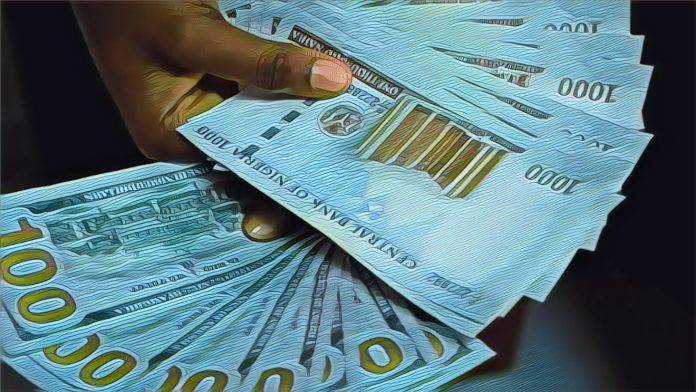The naira, Nigeria’s currency, has fallen to its lowest level against the US dollar on the official market, where the central bank sells foreign exchange. The naira closed at 993.82 per dollar on Monday, compared with 789.94 on Friday, according to FMDQ Group, a Lagos-based exchange operator. This represents a 26% devaluation in a single day.
The sharp drop in the naira’s value was attributed to a severe shortage of dollars in Africa’s most populous nation, which relies heavily on imports for its needs. The dollar supply at the official market plunged two-thirds from a day earlier to $88.3 million, investment bank Chapel Hill Denham said in a note on Tuesday.
The official market, formerly known as the Investors’ and Exporters’ (I&E) FX Window, was renamed the Nigerian Autonomous Foreign Exchange Market (NAFEM) in June as part of the central bank’s efforts to unify the multiple exchange rates in the country and attract more foreign inflows. However, the reforms have not eased the liquidity constraints and backlog of arrears that have weighed on the naira for months.
Finance Minister Wale Edun said last week that the government expects to attract $10 billion of inflows in the coming weeks to help boost the dollar supply and stabilize the naira. He also said that the central bank plans to introduce new foreign exchange rules targeting a rate of 750 naira per dollar.
However, analysts are skeptical about the government’s ability to achieve its targets, given the persistent economic challenges, such as low oil prices, high inflation, weak growth, and security threats. They also warn that further devaluation could erode confidence and worsen inflation, which hit a four-year high of 18.2% in September.
Meanwhile, the naira continues to trade at a premium on the parallel market, where most Nigerians source their dollars due to limited access to the official market. The naira exchanged at 1,165 per dollar on Monday, according to AbokiFX.com, a website that tracks street rates.
The widening gap between the official and parallel rates has raised concerns about arbitrage and corruption in the foreign exchange market. Some experts have called for a more transparent and consistent framework for managing the naira and ensuring its stability.
Despite the challenges, some analysts believe that Nigeria has the potential to overcome its foreign exchange woes and restore confidence in its currency. They point to the country’s large population, abundant natural resources, diversified economy, and resilient private sector as factors that could attract more foreign investment and boost dollar inflows.
Source: Business Insider Africa



